 W
WJan Beyzym was a Polish Roman Catholic priest and a professed member from the Jesuits. He served as an educator in Jesuit boarding schools for a while after his ordination though later left Poland to work alongside lepers in Madagascar where he remained until his death.
 W
WJózef Bilczewski was a Polish Roman Catholic prelate who served as the Archbishop of Lviv from 1900 until his death. He served as a theological and dogmatics professor in the Lviv college after himself having earned two doctorates in the course of his own studies. He earned a reputation as a learned and cultured man; these qualities led to Emperor Franz Joseph I nominating him for the Lviv archdiocese as its head. Pope Leo XIII named him as its archbishop and he set to work prioritizing a range of different pastoral initiatives aimed at revitalizing the faith within people and also prioritizing ecumenical cooperation with other denominations.
 W
WEdmund Bojanowski was a Polish Roman Catholic and the founder of four separate religious congregations. He studied art and literature during his education in Breslau and Berlin before distinguishing himself during a cholera epidemic in which he tended to the ill. Bojanowski founded several orphanages and libraries for the poor and even worked in them to provide for those people. But his main desire was to enter the priesthood: ill health blocked this once and his own death prevented his second attempt after his deteriorating health forced him to stop his ecclesial studies.
 W
WAlbert Chmielowski - born Adam Hilary Bernard Chmielowski - was a Polish nobleman, noted painter, disabled veteran of the Uprising of 1863, a professed religious and founder of both the Albertine Brothers and Albertine Sisters servants of the homeless and destitute.
 W
WRóża Czacka - in religious Elżbieta - was a Polish Roman Catholic professed religious who founded the Franciscan Sisters Servants of the Cross. Czacka suffered an accident in her childhood that later led to her becoming blind after she turned 22 despite the numerous surgical interventions that were performed on her. The next decade saw Czacka travel throughout Europe hoping to learn about techniques that she could use to help the blind; she adapted Polish phonetics into the Braille alphabet that ended up becoming mandated in all schools for the blind since 1934. Czacka entered the Franciscan Third Order in 1917 before founding her own religious congregation in late 1918 based on ideas that she had formulated since at least 1915. Her work received approval from the apostolic nuncio Achille Ratti who lauded her efforts as an exceptional apostolate. In 1950 she retired her role as the Superior General for her order due to her declining health.
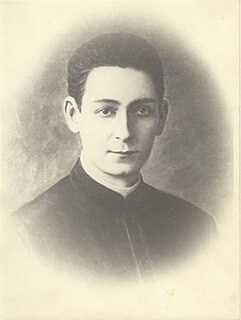 W
WAugust Franciszek Maria Anna Józef Kajetan Czartoryski was a Polish Roman Catholic professed member of the Salesians of Don Bosco and a noble prince. He was born in Paris during his house's exile and came from a notable house; his constant frail health saw much of his childhood being shuttled to various health spas. Raphael Kalinowski tutored him; the prince turned to the priesthood instead of pursuing the aristocratic life.
 W
WEmilian Czyrniański (1824–1888) was a Polish chemist of Lemko descent, science writer, rector of the Jagiellonian University and co-founder of the Polish Academy of Learning. He is responsible for developing chemical nomenclature in Polish. One of his grandsons was the highly influential political activist and writer, Jozef Retinger.
 W
WMichał Drzymała was a Polish peasant living in the Greater Poland region under Prussian rule. He is a Polish folk hero because, after he was denied permission to build a house on his own land by the Prussian authorities in the village of Kaisertreu, he bought a circus wagon and turned it into his home. At the time, Prussian law considered any dwelling a house if it remained stationary for more than 24 hours. Drzymała used the mobility of the wagon to exploit the law and to avoid the negative consequences by moving the wagon each day and thus preventing the Prussians the ability to penalize him. His dwelling became known as Drzymała's wagon, and gained notoriety when this case was described by the Polish and European newspapers, making fun of the Prussian state, and energizing the Poles living under the Prussian authority against it.
 W
WZygmunt Gorazdowski was a Polish Roman Catholic priest and the founder of the Sisters of Saint Joseph. Gorazdowski suffered from tuberculosis during his childhood which impeded his studies for the priesthood in what required him to take time off in order to recover before he could be ordained. Once he was ordained he served in various parishes while setting up homes for orphans and single mothers as well as hospices and other establishments for a range of people; he was a prolific writer of catechism and other religious notes for the benefit of his flock.
 W
WEveline Hańska was a Polish noblewoman best known for her marriage to French novelist Honoré de Balzac. Born at the Wierzchownia estate in Volhynia, Hańska married landowner Wacław Hański when she was a teenager. Hański, who was about 20 years her senior, suffered from depression. They had five children, but only a daughter, Anna, survived.
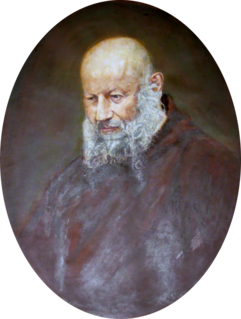 W
WHonorat Koźmiński, born Florentyn Wacław Koźmiński, was a Polish priest and professed member from the Order of Friars Minor Capuchin who went on to establish sixteen religious congregations. He was a teacher before reinvigorating clandestine religious orders that the Russian Empire had suppressed during their occupation of Poland. He collaborated with a number of individuals in this venture and he publicised the Third Order of Saint Francis to people.
 W
WMarie Kalergi was a Polish noblewoman. Born in Saint Petersburg, she was the daughter of Jan Kalergi and the pianist Marie Nesselrode. Kalergi was married on June 27, 1857 in Paris to Franz Karl Coudenhove (1825-1893), founding the Coudenhove-Kalergi family. Their children were:Heinrich Johann Marie Coudenhove-Kalergi, founding the surname "Coudenhove-Kalergi" in 1903 Friedrich Coudenhove-Kalergi Johann Dominik Maria Coudenhove-Kalergi Maria Thekla Walburga Franzisca Coudenhove-Kalergi Richard Joseph Franz Maria Coudenhove-Kalergi Marietta Anna Sophie Viktorie Coudenhove-Kalergi
 W
WHugo Stumberg Kołłątaj, alt. Kołłątay, was a prominent Polish constitutional reformer and educationalist, and one of the most prominent figures of the Polish Enlightenment.
 W
WRudolf Komórek was a Polish priest and a professed member of the Salesians of Don Bosco while also serving as part of the missions in Brazil. He served during World War I as a hospital chaplain and began the process of joining the order of Saint John Bosco following his time as a prisoner of war in Trento.
 W
WPiotr Kosiba - in religious Alojzy - was a Polish Roman Catholic professed religious and member from the Order of Friars Minor; he was often dubbed the "Holy Almoner" or the "Apostle of Goodness and the Poor. He was born to poor farmers and worked straight after his education as a shoemaker due to being unable to afford further education; he was likewise unable to pursue his dream of becoming a priest due to wanting to work to support his siblings. He joined the Franciscans as a religious brother instead in 1878 and worked as their cobbler and beekeeper while ministering to poor children and going around asking for alms for them. His apostolate continued in World War I when he would bring gifts to those affected.
 W
WGraciosa Maria "Marya" Krasińska, or Maria Beatrix Krasińska, was a Polish szlachta and landowner. She is known as the controversial marriage candidate of King Charles XV of Sweden in 1871-1872.
 W
WJulia Ledóchowska - in religious Maria Ursula of Jesus - was a Polish Roman Catholic professed religious and the foundress of the Ursulines of the Agonizing Heart of Jesus. Ledóchowska was a prolific supporter of Polish independence which she often spoke about at conferences across Scandinavia while she settled in Russia for a time to open convents until her expulsion. But she continued to found convents across Scandinavian countries and even translated a Finnish catechism for the faithful there while later founding her own order which she would later manage from Rome at the behest of Pope Benedict XV.
 W
WZofia Potocka née Clavone was a Greek slave courtesan and a Russian agent, later a Polish noblewoman. She was famous in contemporary Europe for her beauty and adventurous life. During the Russo-Turkish War (1787–1792) she was the lover of the Russian commander prince Grigory Potemkin and acted as an agent in Russian service.
 W
WAtanazy Raczyński was a Polish count (hrabia) and diplomat in Prussian service. He was a noted art critic and built a notable collection of paintings during his long stays in major European metropolises.
 W
WJózefa Rostkowska (1784–1896), was a Polish heroine of the November Uprising against Russia. She served as a nurse both in the uprising of 1830 as well as during the Crimean War.
 W
WPrincess Carolyne zu Sayn-Wittgenstein was a Polish noblewoman (szlachcianka) who is best known for her 40-year relationship with musician Franz Liszt. She was also an amateur journalist and essayist, and it is conjectured that she did much of the actual writing of several of Liszt's publications, especially his Life of Chopin. She maintained an enormous correspondence with Liszt and many others, which is of vital historical interest. She admired and encouraged Hector Berlioz, as is clear from their extensive correspondence. Berlioz dedicated Les Troyens to Princess Carolyne.
 W
WCountess Karolina Rozalia Tekla Sobańska was a Polish agent and noblewoman. She was a Russian agent, the mistress of the Tsarist general Jan de Witte (1781–1840) and a reputed lover of Poland's national poet Adam Mickiewicz.
 W
WMałgorzata Szewczyk, also known by her religious name Łucja, was a Polish nun and the foundress of the Daughters of the Sorrowful Mother of God – or Seraphic Sisters; she was also a member of the Third Order of Saint Francis. Her life was dedicated to the care of ill people and she even spent a long period to that end in Israel and Palestine before returning to her native Poland where she became a close collaborator of Honorat Kozminski. Her initiatives to aid the poor and those in need included tending to elder women in her apartments or in going to hospitals and in the streets to help those that needed her charitable assistance.
 W
WMaria Szymanowska was a Polish composer and one of the first professional virtuoso pianists of the 19th century. She toured extensively throughout Europe, especially in the 1820s, before settling permanently in St. Petersburg. In the Russian imperial capital, she composed for the court, gave concerts, taught music, and ran an influential salon.
 W
WLudwik Karol Teichmann-Stawiarski (1823–1895) was a Polish anatomist and discoverer of a new way of research in forensic medicine, after whom Teichmann crystals are called.
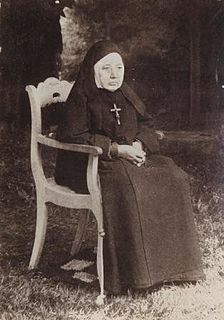 W
WAngela Truszkowska was a Polish nun who has been beatified by the Roman Catholic Church. Foundress of the Felician Sisters, she forged one of the first active-contemplative communities that, nearly a century and a half later, would grow to include more than 1,800 vowed Sisters over four continents serving in an array of ministries.
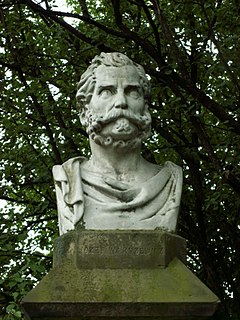 W
WJózef Warszewicz Ritter von Rawicz was a Polish botanist, plant and animal collector, and biologist.
 W
WAleksandra Zajączek, was a Polish noblewoman. She was the spouse of Józef Zajączek, Viceroy of Poland in 1815-26. She was known for her beauty, and for the treatments she recommended in order to keep it.
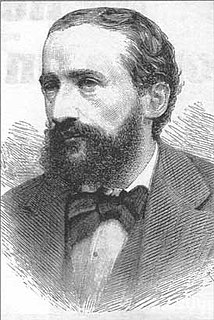 W
WJohannes Hermann Zukertort was a leading Polish-German-British chess master. He was one of the leading world players for most of the 1870s and 1880s, and lost to Wilhelm Steinitz in the World Chess Championship 1886, which is generally regarded as the first World Chess Championship match. He was also defeated by Steinitz in 1872 in an unofficial championship.